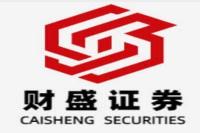Electric Vehicle Power Supply Equipment: Navigating the New CCC Certification Landscape
Meta Description: Understanding the implications of the mandatory CCC certification for electric vehicle power supply equipment in China, including timelines, requirements, and impact on manufacturers and consumers. #CCCCertification #EVPowerSupply #ElectricVehicleSafety #ChinaRegulations #ProductSafety
Wow, buckle up, folks! The Chinese market is changing gears, and it's about to impact the entire electric vehicle (EV) industry in a big way. We're talking about a significant shift in how EV power supply equipment gets to market – the introduction of mandatory CCC certification. This isn't just another regulatory hurdle; it's a game-changer that will redefine safety standards, quality control, and market access for manufacturers worldwide. Forget what you think you know about Chinese product regulations; this is a deep dive into the nuts and bolts, the ins and outs, and the what-ifs of this new era. We'll unpack the intricacies of the CCC certification process, explore its implications for businesses, and delve into the reasons behind this significant regulatory change. This isn't just another news article; it's your comprehensive guide to navigating this complex landscape, offering actionable insights and practical advice, all backed by deep industry knowledge and experience. Get ready to elevate your understanding of the EV power supply market and the critical role of CCC certification in ensuring safety and consumer trust. We’ll explore the timeline, the specific requirements, the potential challenges, and – most importantly – how you can leverage this change to your advantage. Are you ready to drive towards success in the evolving Chinese EV market? Let's hit the road!
CCC Certification: A Deep Dive into China's New EV Power Supply Regulations
The recent announcement by the State Administration for Market Regulation (SAMR) mandates CCC certification for all electric vehicle power supply equipment entering the Chinese market. This means that starting March 1st, 2025, the SAMR will begin accepting applications for certification, with a critical deadline looming: August 1st, 2026. After this date, any EV power supply equipment lacking CCC certification will be barred from manufacturing, sales, import, and any other commercial activity within China. This is no small matter; it's a significant regulatory shift with far-reaching consequences.
This isn't just about ticking a box; it's a fundamental change focused on bolstering product safety. The CCC certification process involves rigorous testing of key safety parameters, including:
- Electrocution Protection: Ensuring the equipment effectively prevents electric shocks.
- Short Circuit Protection: Verifying the system's ability to handle and mitigate short circuits.
- Fire and Flame Resistance: Assessing the equipment's ability to withstand fire and prevent its spread.
Beyond the product itself, the certification process includes ongoing audits of manufacturers' quality management systems (QMS). This ensures that quality isn't just a one-time event but an ingrained part of the manufacturing process. Think of it as a continuous improvement cycle, driving higher standards across the board.
The SAMR is aiming to create a truly robust and reliable system. They're acknowledging the need for a smooth transition, though. To facilitate the process, they'll proactively recognize pre-existing certifications where applicable, providing a grace period to ease the burden on manufacturers.
Understanding the Implications for Manufacturers
This new regulation presents both challenges and opportunities for manufacturers. On one hand, achieving CCC certification requires investment in testing, documentation, and potentially, adjustments to existing production processes. This can be a significant upfront cost. But it's crucial to remember that this is an investment in long-term success in the Chinese market.
Think of it this way: CCC certification isn't just a regulatory requirement; it's a badge of honor. It signifies a commitment to safety and quality, enhancing brand credibility and consumer trust. In a market as competitive as China's, this can be a significant differentiator. Companies who see this as a hurdle rather than an opportunity are missing out on the potential rewards.
Moreover, the SAMR's commitment to recognizing pre-existing certifications where applicable significantly reduces the administrative load. This demonstrates a pragmatic approach, balancing stringent safety standards with a spirit of collaboration. Companies should actively engage with certification bodies early to streamline the process and minimize disruptions.
Here’s a breakdown of the key implications:
| Implication | Positive Aspects | Negative Aspects | Mitigation Strategies |
|----------------------|---------------------------------------------------------|----------------------------------------------------|-------------------------------------------------------|
| Increased Costs | Enhanced brand reputation, increased consumer trust | Upfront investment in testing and certification | Plan ahead, explore cost-effective certification routes |
| Time Commitment | Improved safety standards, reduced product liability risks | Delays in product launch | Engage with certification bodies early, prepare thoroughly |
| Regulatory Complexity | Enhanced market access, compliance with legal requirements | Navigating complex regulations | Seek expert advice, proactively engage with authorities |
The Consumer Perspective: Safety and Trust
For consumers, the implications are clear-cut: improved safety and increased confidence. The rigorous testing and quality control measures inherent in the CCC certification process will significantly reduce the risk of purchasing defective or unsafe EV power supply equipment. This means greater peace of mind, knowing that the equipment powering their vehicles has met stringent safety standards. It's a win-win: manufacturers demonstrate their commitment to quality and consumers receive a safer, more reliable product.
Frequently Asked Questions (FAQs)
Q1: What exactly is CCC certification?
A1: CCC (China Compulsory Certification) is a mandatory certification scheme for a wide range of products sold in China, ensuring they meet minimum safety and quality standards. For EV power supply equipment, it's a crucial step for legal market access.
Q2: How long does the CCC certification process take?
A2: The timeframe varies depending on the complexity of the product and the efficiency of the manufacturer's preparation. Generally, it's best to allow ample time, ideally starting the process well in advance of the deadlines.
Q3: What are the penalties for non-compliance?
A3: Non-compliant products will be prohibited from being manufactured, sold, imported, or used in China. This includes significant fines and potential legal repercussions.
Q4: Can I still sell existing stock after August 1st, 2026?
A4: No. After August 1st, 2026, only CCC-certified EV power supply equipment will be legally permissible for sale or use in China.
Q5: What if my company is based outside China?
A5: Even if your company is not based in China, you'll still need CCC certification to sell EV power supply equipment within the Chinese market.
Q6: Where can I find more information about the CCC certification process?
A6: The SAMR website and various accredited certification bodies offer detailed information and guidance on the CCC certification process. It's recommended to consult these resources early on.
Conclusion: Embracing the Future of EV Power Supply in China
The introduction of mandatory CCC certification marks a pivotal moment for the EV industry in China. While it presents challenges, it ultimately underscores a commitment to safety, quality, and consumer protection. By embracing this new regulatory landscape, manufacturers can position themselves for continued success in this dynamic and rapidly growing market. Proactive planning, thorough preparation, and a collaborative approach with certification bodies are key to navigating this transition effectively. The future of EV power supply in China is bright, and those who adapt and comply will undoubtedly reap the rewards. The journey may be challenging but the destination is worth it. Remember, safety first – and always check the paperwork!



